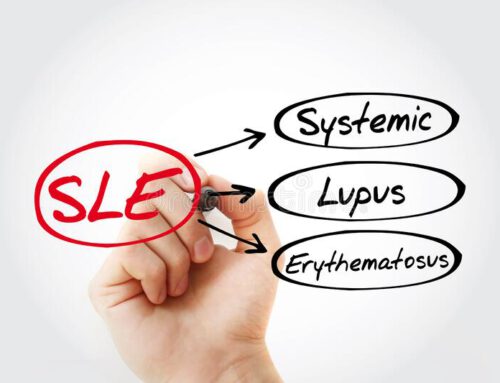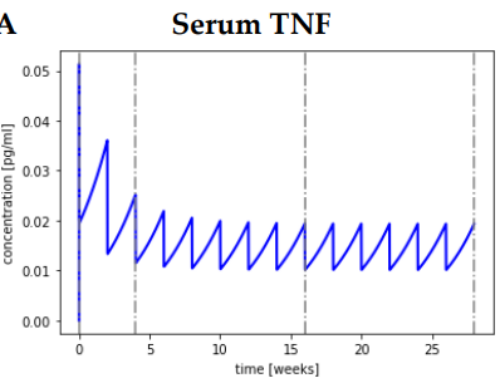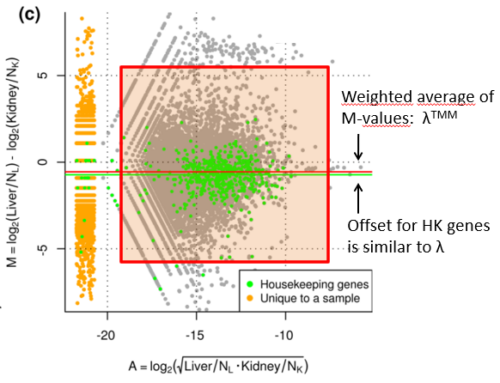OMICS in Biomedical Sciences (Biomedical Sciences, UvA)
Coordinator: prof. dr. Antoine van Kampen and dr. Martijs Jonker.
Programme: Bachelor Biomedical Sciences (UvA); Second year.
Studie load: 12 EC (April / May)
First edition of the course was given in 2011
Description
Omics technologies are increasingly being used in biomedical sciences. These are advanced laboratory techniques that are able to perform large-scale and detailed measurements at the molecular level. Thanks to these techniques, we are now able, for example, to map the complete human DNA sequence, or to measure the expression levels of all genes in a cell (about 20,000 for humans), or to measure large numbers of proteins or identify metabolites in the cell.
These new laboratory techniques have created many new possibilities. For example, by mapping the DNA sequences of patients, we can find out which mutations play a role in specific diseases. By mapping gene expression, we gain more insight into the functioning of biological networks and their changes in disease. Omics technologies provide new fundamental insights into the functioning of a cell in health and during disease, and also contribute to improved diagnosis and treatment of patients.
Unlike traditional laboratory techniques, omics technologies produce large amounts and/or complex data sets. The analysis of these datasets requires bioinformatics expertise. Bioinformatics is a scientific discipline in which statistics and informatics are used for the management, analysis and interpretation of omics data.
In this course you will also be introduced to systems biology. Systems biology aims to unravel and understand biological systems through the use of omics technologies, bioinformatics, and/or mathematical modelling. You will learn how omics, bioinformatics and systems biology contribute to biomedical research and diagnostics.
Learning goals
- Describe applications of -omics and systems biology in biomedical research and diagnostics (eg personalized medicine);
- Identify legal and ethical aspects of whole-genome sequencing in diagnostics;
- Explain how a number of selected omics technologies for determining nucleotide sequences, gene expression, proteins, metabolites, and fats (lipidomics) work;
- Comparing a number of selected omics technologies, with each other and with traditional technologies;
- To be able to interpret data from a number of selected omics technologies;
- Explain and apply simple experimental experimental designs for omics experiments;
- Being able to explain and perform simple (statistical) analyzes of omics data;
- Explain how a number of selected bioinformatics methods work to analyze -omics data;
- Describe simple dynamic biological systems with differential equations, and be able to analyze them mathematically;
- Explain which aspects are important in managing data and information in (public) databases (eg annotation, curation, information standards);
- Explain how omics technologies and bioinformatics are used for microbiome analysis.
Topics
- Next generation sequencing (Sanger, NGS, WGS, WES)
- Public databases and data management
- Transcriptomics (DNA microarrays, (single cell) RNAseq
- Microbioom
- Proteomics
- Metabolomics
- Data analyses and experimental design
- Systems Biology
- Systems Modelling (ordinary differential equations)
These topics comprise the experimental and computational aspects and are teached to the students using lectures, tutorials, and computer labs.
As part of the computer labs the students different software/hardware environments including R/Rstudio, Unix, and HPC Cloud from SURFsara.
Study Material
- Alberts B., Johnson A., Lewis J., Raff M., Roberts K., Walter P. (2014) Molecular biology of the cell. Sixth edition. Taylor & Francis Inc
- Syllabus_OiBMW.v9.01
The computer lab ‘exome sequencing’ makes use of the Unix-based HPC Cloud facility of SURFsara to have sufficient compute power and storage capacity. We acknowledge SURFsara for their support and making these facilities available.
Teachers
- Prof. dr. Antoine van Kampen
- Dr. Martijs Jonker
- Dr. Rob Dekker
- Dr. Michel van Weeghel
- Dr. ir. Huub Hoefsloot
- Dr. Johan Westerhuis
- Dr. David Speijer
- Dr. Mark Davids
- Dr. Jeroen Guikema
Computer lab assistants
- Barbera van Schaik, BSc
- Dr. Mia Pras-Raves
- Dr. Aldo Jongejan
- Dr. Frans van der Kloet
- Eric Wever, MSc
- Dr. Adrie Dane
- Dr. Han Rauwerda
Some fun (in Dutch) ………
Example of lecture about systems modelling (in Dutch)








